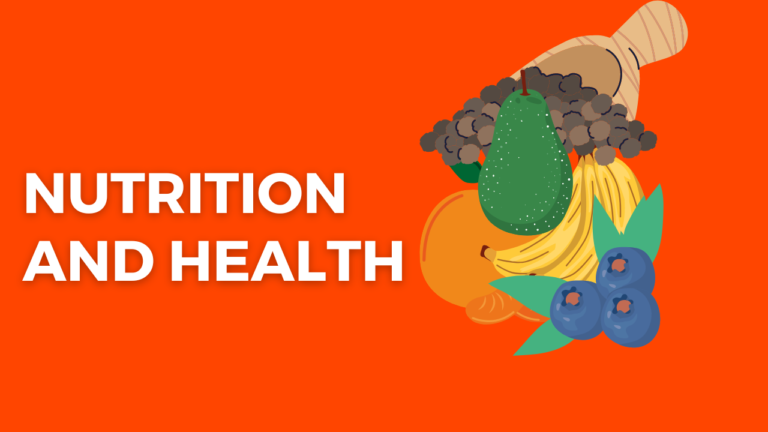The Nutrition Plan You Need

Introduction
Absolutely! Sustainable eating is a holistic approach to nutrition that emphasizes long-term, healthy habits rather than quick-fix crash diets. Here are some key principles for a sustainable nutrition plan:
- Balanced Meals: Aim for balanced meals that include a variety of nutrient-dense foods, such as fruits, vegetables, whole grains, lean proteins, and healthy fats. This provides the body with essential vitamins, minerals, and macronutrients.
- Portion Control: Be mindful of portion sizes. Eating the right portions helps in maintaining a healthy weight and ensures you’re not overconsuming calories.
- Moderation, Not Deprivation: Allow yourself to enjoy your favorite foods in moderation. Completely cutting out certain foods can lead to cravings and unsustainable eating patterns. Instead, focus on portion sizes and frequency of consumption.
- Whole Foods: Prioritize whole, unprocessed foods over highly processed options. Whole foods are typically more nutrient-dense and contain fewer additives, sugars, and unhealthy fats.
- Mindful Eating: Pay attention to hunger cues and eat slowly. This helps prevent overeating and allows your body to recognize when it’s full.
- Stay Hydrated: Drink plenty of water throughout the day. Sometimes feelings of hunger can actually be due to dehydration.
- Meal Planning and Preparation: Planning your meals ahead of time and preparing them at home can help you make healthier choices and avoid relying on fast food or processed meals.
- Regular Exercise: Combine a balanced diet with regular physical activity for overall health and well-being. Exercise helps maintain weight, improves mood, and contributes to overall fitness.
- Consistency Over Perfection: Focus on consistency rather than perfection. Small, sustainable changes over time can lead to long-term success.
- Seek Professional Guidance: If needed, consult a registered dietitian or nutritionist. They can provide personalized advice based on your individual health needs and goals.
Remember, sustainable eating is about adopting a lifestyle that supports overall health and well-being, rather than following strict rules or short-term solutions. It’s a gradual and lifelong approach to nutrition that can lead to lasting benefits.
Understanding the Importance of Regular Exercise
Regular exercise plays a crucial role in maintaining overall health and well-being. Its importance extends beyond just physical fitness and encompasses various aspects of our health:
- Physical Health: Exercise helps in maintaining a healthy weight, reducing the risk of chronic diseases such as heart disease, type 2 diabetes, and certain cancers. It strengthens bones, muscles, and joints, improving overall physical fitness and reducing the risk of injuries.
- Mental Health: Physical activity has a significant impact on mental well-being. It helps in reducing symptoms of anxiety, depression, and stress by promoting the release of endorphins, the body’s natural feel-good chemicals. Exercise can also improve mood, boost self-esteem, and enhance cognitive functions.
- Energy Levels and Sleep: Regular physical activity can improve sleep quality and duration. It helps regulate sleep patterns, leading to better rest and increased energy levels throughout the day.
- Brain Health: Exercise has been linked to improved brain health and cognitive function. It can enhance memory, attention, and learning by promoting the growth of new brain cells and reducing the risk of age-related cognitive decline.
- Immune System: Moderate exercise can boost the immune system, reducing the risk of illnesses and infections. It helps in flushing out bacteria from the airways and lungs, promoting better circulation and an overall healthier immune response.
- Longevity and Quality of Life: Studies consistently show that regular physical activity is associated with a longer lifespan. It not only adds years to life but also improves the quality of life by enhancing physical function and mobility in daily activities.
- Social Interaction: Participating in group exercise classes, sports, or fitness activities can provide social benefits. It allows for social interaction, fostering connections, and a sense of community, which contributes positively to mental and emotional well-being.
It’s important to note that the type, duration, and intensity of exercise can vary based on individual fitness levels, age, and health conditions. Engaging in a combination of aerobic exercises, strength training, flexibility, and balance exercises can offer comprehensive health benefits.
Ultimately, integrating regular exercise into your routine is an investment in your health. Even small amounts of physical activity can make a significant difference in improving overall health and quality of life. Always consult a healthcare professional before starting a new exercise regimen, especially if you have any underlying health concerns.
Embracing a Wide Variety of Healthy Foods
Embracing a wide variety of healthy foods is a cornerstone of a nutritious and balanced diet. Including diverse foods ensures that you get a broad spectrum of nutrients necessary for overall health. Here’s how you can achieve this:
- Fruits and Vegetables: Incorporate a rainbow of fruits and vegetables into your diet. Different colors indicate various vitamins, minerals, and antioxidants. Aim for a mix of leafy greens, berries, citrus fruits, carrots, bell peppers, and other colorful produce.
- Whole Grains: Opt for whole grains like brown rice, quinoa, barley, oats, whole wheat bread, and whole grain pasta. They’re rich in fiber, vitamins, and minerals compared to refined grains.
- Lean Proteins: Include a variety of lean protein sources such as poultry, fish, beans, lentils, tofu, tempeh, nuts, and seeds. Varying protein sources ensures you get a range of amino acids and nutrients.
- Healthy Fats: Incorporate sources of healthy fats like avocados, nuts, seeds, olive oil, and fatty fish (like salmon or mackerel). These fats provide essential fatty acids and support heart health.
- Dairy or Alternatives: If you consume dairy, choose low-fat or fat-free options. Alternatively, opt for fortified plant-based milk like almond, soy, or oat milk, which provide similar nutrients to dairy.
- Herbs, Spices, and Seasonings: Enhance flavors and nutritional profiles of your meals with herbs, spices, and healthy seasonings. They add variety and can provide additional health benefits.
- Hydration: Include various beverages like water, herbal teas, and fresh fruit-infused water to stay hydrated. Minimize sugary drinks and excessive caffeine.
- Fermented Foods: Incorporate fermented foods like yogurt, kefir, kimchi, sauerkraut, and kombucha. These foods contain beneficial bacteria that support gut health.
- Mindful Eating: Pay attention to portion sizes and listen to your body’s hunger and fullness cues. Mindful eating helps in enjoying food more and prevents overeating.
- Explore New Foods: Be adventurous and try new foods regularly. Exploring different cuisines or trying unfamiliar ingredients can add excitement and nutritional diversity to your meals.
Remember, a balanced diet involves moderation and variety. Eating a wide range of nutritious foods not only provides essential nutrients but also makes your meals more enjoyable and satisfying. Aim for a diverse plate to ensure you’re getting a broad spectrum of vitamins, minerals, and other beneficial compounds necessary for good health.
Debunking Common Diet Myths
Certainly! There are several prevalent diet myths that often circulate, and it’s essential to separate fact from fiction to make informed decisions about nutrition and health. Here are some common diet myths debunked:
- Myth: Eating fat makes you fat.
Fact: Not all fats are equal. Healthy fats like those found in avocados, nuts, seeds, and oily fish are essential for overall health. Consuming them in moderation can actually support weight management and provide various health benefits. - Myth: Carbohydrates are always bad for you.
Fact: Carbohydrates are a crucial energy source for the body. Opt for complex carbohydrates like whole grains, fruits, and vegetables that offer fiber, vitamins, and minerals. Moderation and choosing healthier sources are key. - Myth: You need to detox or cleanse regularly to rid your body of toxins.
Fact: The body has its own mechanisms, primarily the liver and kidneys, to eliminate toxins. Extreme detoxes or cleanses can be harmful and unnecessary. Instead, focus on a balanced diet and hydration to support natural detoxification. - Myth: Skipping meals helps with weight loss.
Fact: Skipping meals can lead to overeating later in the day and disrupt your metabolism. It’s better to eat regular, balanced meals and snacks to maintain stable energy levels and prevent excessive hunger. - Myth: All calories are created equal.
Fact: While calorie intake is important for weight management, the quality of calories matters. Nutrient-dense foods like vegetables, fruits, lean proteins, and healthy fats offer more nutritional value than processed foods with empty calories. - Myth: Eating late at night causes weight gain.
Fact: Weight gain is more about the total calories consumed throughout the day rather than the specific timing of meals. However, eating late at night may lead to poor food choices or overeating due to tiredness or emotional reasons. - Myth: Low-fat or fat-free foods are always healthier.
Fact: Some low-fat or fat-free products may contain added sugars or other additives to enhance taste. It’s important to check labels and consider the overall nutritional content of these products. - Myth: All gluten-free products are healthier.
Fact: Gluten-free doesn’t necessarily mean healthier. Many gluten-free products contain refined flours and sugars, and they may lack essential nutrients found in whole grains. For those with celiac disease or gluten sensitivity, it’s crucial to opt for naturally gluten-free whole foods. - Myth: Certain foods can speed up metabolism significantly.
Fact: While some foods might slightly boost metabolism temporarily, there are no magical foods that dramatically speed up metabolism. Regular exercise, muscle mass, and overall activity level have a more significant impact on metabolic rate. - Myth: You can’t enjoy your favorite foods if you’re on a healthy diet.
Fact: Moderation is key. You can still enjoy your favorite foods while following a healthy diet. It’s about balance and portion control rather than complete restriction.
Understanding these myths can help in making more informed choices about food and nutrition, focusing on sustainable and evidence-based practices for overall health and well-being.
Choosing the Right Diet Plan for You
Choosing the right diet plan can be a personal and individualized decision based on various factors, including health goals, preferences, lifestyle, and any specific dietary needs or restrictions. Here are steps to help you select a diet plan that suits you:
- Assess Your Goals: Determine your specific health goals. Are you aiming for weight loss, improved energy, managing a health condition, or overall wellness? Understanding your goals will help you choose a plan aligned with your objectives.
- Consider Your Preferences: Think about the foods you enjoy and the eating patterns that work best for you. Some people prefer structured meal plans, while others prefer more flexible approaches. Choose a plan that fits your lifestyle and food preferences to increase the likelihood of sticking with it long-term.
- Consult a Professional: If you have any underlying health conditions, dietary restrictions, or specific nutritional needs, consult a registered dietitian, nutritionist, or healthcare provider. They can offer personalized advice tailored to your individual requirements.
- Evaluate Different Diet Plans: There are various diet plans available, each with its principles and approaches. Some popular options include:
- Mediterranean Diet: Focuses on whole foods, emphasizing fruits, vegetables, whole grains, lean proteins, and healthy fats like olive oil.
- DASH Diet: Designed to lower blood pressure, emphasizing fruits, vegetables, lean proteins, and low-fat dairy while reducing sodium intake.
- Vegetarian or Vegan Diet: Excludes or minimizes animal products, relying on plant-based foods for nutrients.
- Low-Carb or Keto Diet: Limits carb intake, promoting higher fat and moderate protein consumption for weight loss or managing blood sugar levels.
- Intermittent Fasting: Focuses on time-restricted eating, cycling between periods of eating and fasting.
- Be Realistic and Sustainable: Choose a plan that you can realistically maintain in the long term. Avoid drastic, unsustainable diets that may lead to quick results but are challenging to sustain.
- Educate Yourself: Research and understand the principles behind the chosen diet plan. Look for credible sources and scientific evidence supporting its effectiveness and safety.
- Monitor Your Progress: Track your progress and how you feel on the chosen plan. Adjustments might be necessary to ensure it aligns with your body’s needs and goals.
- Focus on Overall Health: A well-rounded diet plan should focus on overall health, providing essential nutrients, and promoting balance and moderation rather than extreme restrictions.
Remember, no single diet plan works for everyone. The key is to find a plan that suits your lifestyle, preferences, and health needs while promoting long-term sustainability and overall well-being. It’s also essential to listen to your body and make adjustments as needed to achieve optimal health outcomes.
The Connection Between Food and Mood
The relationship between food and mood is significant and complex. What you eat can impact your mood and overall mental well-being in several ways:
- Nutrient Influence: Certain nutrients, like omega-3 fatty acids, vitamins (such as B vitamins), minerals (like magnesium and zinc), and amino acids (such as tryptophan), play crucial roles in brain function and neurotransmitter production. Consuming a balanced diet rich in these nutrients supports optimal brain health and can positively affect mood regulation.
- Serotonin Production: Serotonin, often referred to as the “feel-good” neurotransmitter, is influenced by the food you eat. Foods rich in tryptophan, like turkey, nuts, seeds, and dairy products, can help boost serotonin levels.
- Blood Sugar Levels: Foods with a high glycemic index can cause rapid spikes and drops in blood sugar levels, affecting mood swings and energy levels. Balanced meals with complex carbohydrates, fiber, protein, and healthy fats help stabilize blood sugar levels, contributing to more stable moods.
- Gut-Brain Connection: The gut and brain are closely connected through the gut-brain axis. The gut microbiota influence brain health and mood. A healthy gut microbiome, supported by a diverse range of fiber-rich foods and probiotics, can positively impact mental health.
- Inflammation: Chronic inflammation in the body has been linked to conditions like depression. Consuming anti-inflammatory foods such as fruits, vegetables, fatty fish, nuts, and seeds may help reduce inflammation and potentially improve mood.
- Caffeine and Alcohol: Consumption of caffeine and alcohol can affect mood. While moderate amounts of caffeine might boost alertness, excessive intake can lead to anxiety or restlessness. Alcohol, in excess, can depress the central nervous system and impact mood negatively.
- Hydration: Dehydration can affect mood and cognitive function. Ensuring adequate hydration by drinking water and staying properly hydrated throughout the day is important for mental well-being.
- Emotional Eating: Emotional states can influence food choices, leading to emotional eating. Stress, sadness, or anxiety might prompt individuals to reach for comfort foods, but these choices may not support optimal mood in the long run.
By making mindful choices about the foods you eat, prioritizing a balanced diet rich in whole foods, and paying attention to how food affects your mood and energy levels, you can positively impact your mental well-being. While food can play a significant role, it’s essential to consider other factors such as physical activity, sleep, stress management, and professional support if experiencing persistent mood disturbances.
Conclusion
Understanding the intricate relationship between food and various aspects of health, including physical well-being, mental health, and overall mood, is crucial for leading a balanced and fulfilling life.
Food is more than mere sustenance; it’s a fundamental component influencing our bodies and minds. A balanced diet rich in nutrient-dense foods, including fruits, vegetables, whole grains, lean proteins, and healthy fats, not only supports physical health but also plays a pivotal role in mental well-being.
The impact of food on mood involves intricate mechanisms, from the influence of nutrients on neurotransmitter production to the gut-brain connection. Opting for foods that support brain health, stabilize blood sugar levels, and maintain a healthy gut microbiome contributes to positive mental states and emotional balance.
However, it’s important to approach dietary choices holistically. While food significantly influences our well-being, it’s just one piece of the puzzle. Factors like exercise, sleep, stress management, and social connections also play pivotal roles in maintaining overall health.
Ultimately, adopting a balanced approach to nutrition that emphasizes whole, unprocessed foods, mindful eating habits, and considering individual preferences and needs is key. Striving for sustainable dietary habits, making informed choices, and being mindful of how food affects both the body and mind can pave the way for long-term health and well-being.
Remember, seeking guidance from healthcare professionals, incorporating a variety of nutritious foods, and listening to your body’s cues can empower you to make choices that nourish not only your body but also your mind, promoting a healthier and happier life.






